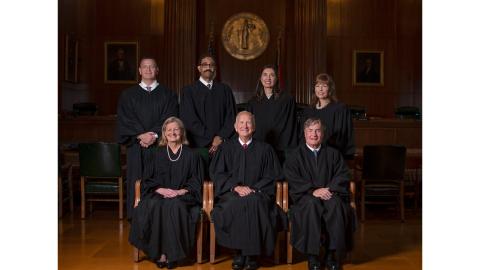Supreme Court of North Carolina to Hold Session at Historic 1767 Chowan County Courthouse October 3-4
Article contents

The Supreme Court of North Carolina will hold its October session of court at the Historic 1767 Chowan County Courthouse in Edenton on October 3 and 4. The Court will hear three cases on Monday and two cases on Tuesday.
Under state law, the Supreme Court can meet in only two other cities outside of Raleigh: Edenton and Morganton.
FOR TICKETS
Due to limited seating, admission to these sessions of court is by ticket only. Tickets are free of charge and available to the public on a first-come, first-served basis via a "will call" system. Participants must pre-register at Historic Edenton, 108 N. Broad Street, Edenton, NC 27932 or by calling (252) 482-2637. Participants will need to indicate which session(s) they wish to attend. Participant names and phone numbers will be collected. Courtroom attire is required.
QUOTE
“We are delighted that Edenton is hosting the Supreme Court once again," said Chief Justice Newby. “Holding this special session of court outside of Raleigh makes it easier for North Carolinians across the state to better understand the rule of law and the Judicial Branch's Constitutional obligation to ensure that justice is delivered without favor, denial, or delay.”
Senior Associate Justice Robin Hudson
Associate Justice Sam Ervin IV
Associate Justice Michael Morgan
Associate Justice Phil Berger, Jr.
Associate Justice Tamara Barringer
WHEN
Monday, October 3, and Tuesday, October 4
Starts at 9:30 a.m.
WHERE
Historic 1767 Chowan County Courthouse
117 East King Street
Edenton, NC 27932
PRESS
Oral arguments will be streamed live on YouTube in lieu of a media pool. The links are below:
- October 3 - Public streaming link
- October 4 - Public streaming link
About the Supreme Court of North Carolina
The Supreme Court of North Carolina is the state’s highest court, and there is no further appeal from its decisions on matters of state law. It is made up of the Chief Justice, who also serves as head of the Judicial Branch, and six associate justices. Each justice serves an eight-year term. The Supreme Court has no jury and makes no determinations of fact, but it considers whether error occurred at trial or in judicial interpretation of the law.